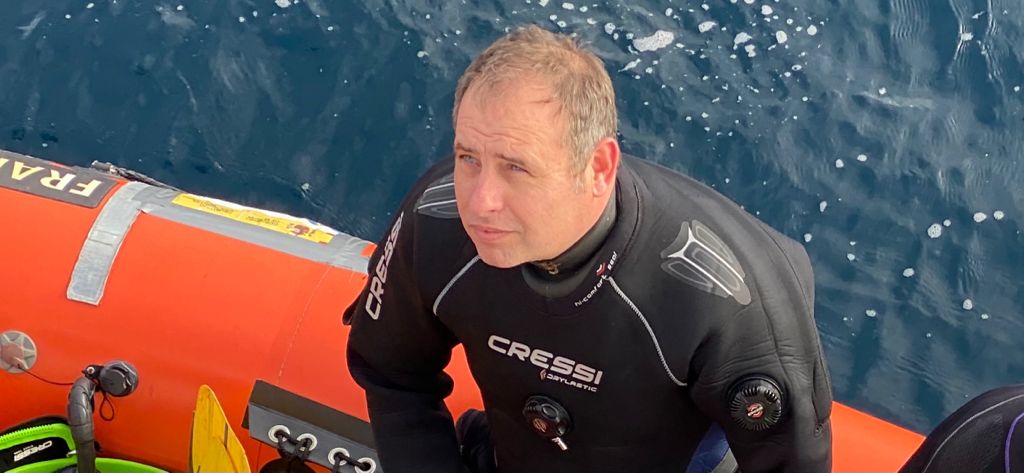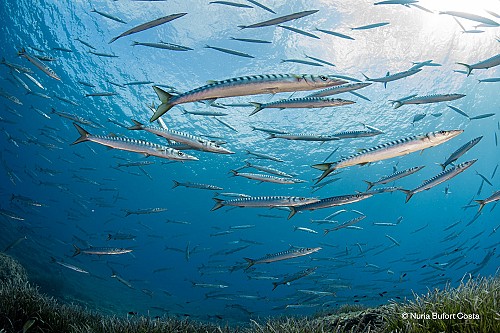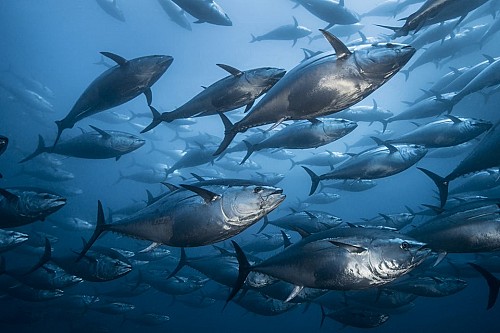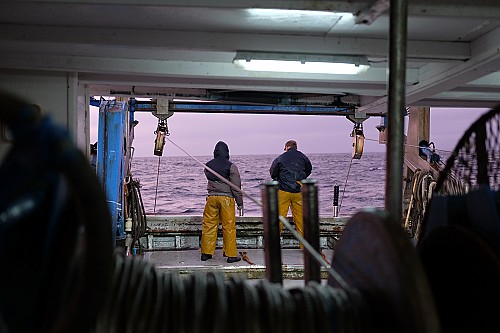David Díaz has a Biology degree from Barcelona University (2000). His doctoral thesis was on the ecology of the red lobster’s juvenile stages. He has developed his career in Barcelona University, the Institut de Ciènciesdel Mar (CSIC), the Institute of Marine Science in Barcelona, and currently in the Instituto Español de Oceanografia (IEO, Spanish Institute of Oceanography). His main areas of research are the study of the effects of protection in marine reserves, the investigation of benthic ecology, artisan fishing, and the demography of key species of the ecosystem. He is currently coordinating the programme of National Marine Strategies of the Sublittoral Rocky Zone.
You’re a great diver and an expert in lobster photography. Do we have more or fewer lobsters?
At present, the lobster population presents a paradox. In fact, as all independent indicators of the fishing sector show, we have fewer and fewer lobsters. But if we look at the lobster catch in the Balearics during the past few years, we see that more and more lobsters are being fished. What’s happening? Well, global change is affecting the dynamics of the species and at present we’re legally fishing more females, because they have not been fertilized during the permitted season (when they are protected by law). The future of this species and of its fishing is to adapt to its dynamics and apply effective and adjusted management.
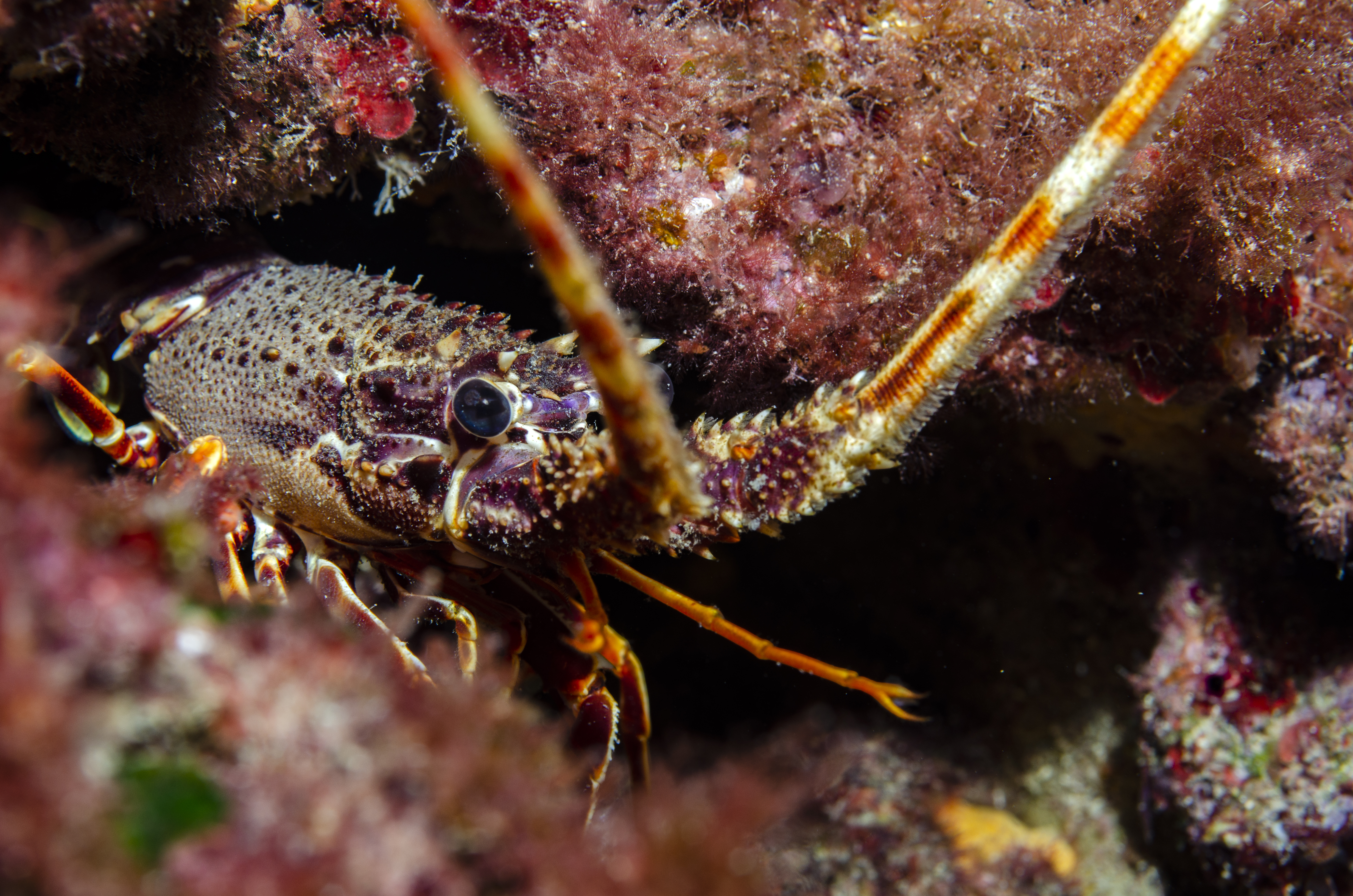
Lobster (Palinurus elephas). Author: Xavi Mas.
According to Marine Strategies, are we on the right track to achieve a good environmental status of the marine ecosystem?
The truth is that we still don’t know how well we’re doing in that respect. But what I can say is that we’re taking firm and efficient steps to find out, at a national level, how the marine environment is doing. Once we know how things are at present, what point we’re at and what our benchmarks are, we’ll be able to decide what to do to improve matters and ensure a large part of our marine ecosystem is in good order.
Which are the most fascinating underwater places? And which of them should enjoy greater protection?
For me, the most fascinating places are deep caves and coralligenous habitats. Diving through these ecosystems allows you to truly get away from the environment you’re used to inhabiting, and to hear your own thoughts underwater. Both environments are protected, but their protection is not always effective, and should therefore be reinforced.
Leisure fishing in very much on the increase. How do you think it could be managed better?
Fishing has always been a widely practised activity the whole world over, and has been so for thousands of years. Among all the different types of fishing that take place worldwide, and which everyone points at as the cause for the decline in fish stock, leisure fishing has been the most forgotten category until just a few years ago. For some species, such as the Mallorcan lobster (Scyllarides latus), underwater leisure-fishing has been identified as the reason for the low presence of specimens in our waters. Therefore, it’s potentially damaging, andit affects the presence of distinctive species on our shores. Leisure fishing in the Balearics is an important activity due to the significant volume of its catches and its business. Both aspects need to be considered when managing leisure fishing. With all the new technologies at our disposal, I’m sure it can be better run; and I know for a fact that managers are getting down to work.
Quick test for sea lovers:
A book: Bajo los cielos de Asia (“Under Asian Skies”), by Iñaki Ochoa de Olza. I imagine his life, but in the sea.
An image that makes you think of the Balearics: blue or turquoise green, depending on the day.
A marine species: the red lobster.
A benchmark person or organisation: Mikel Zabala, lecturer in Ecology at Barcelona University.
A beach: always one with thick sand and warm water.
A phrase that defines you: “Think carefully about what you want to achieve, and you’ll get an average result”.
Are you an optimist, realist or pessimist? A pessimist, but we’ll get through this.

